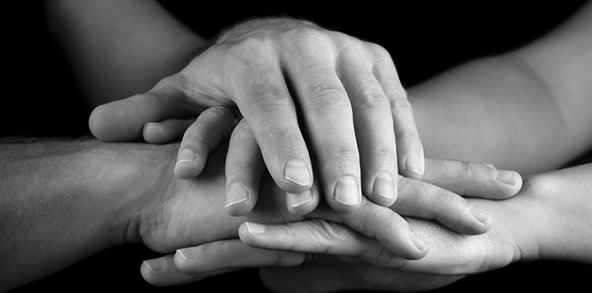Peer Support Program
The Peer Support Program is intended to help survivors and caregivers of an Acquired Brain Injury (ABI). The program is designed for those who have an acquired brain injury and need and want support on a one to one basis. It helps connect a strong survivor with lived experience, a Mentor, to someone who is learning to cope with their new self and needs a friend who understands, a Partner.
Who is a Partner? A Partner is someone who is coping with issues created by the ABI and who needs support. No longer do they have to feel isolated or think no one understands.
Who is a Mentor? A Mentor is someone who has experienced an acquired brain injury and knows the sense of separation, loneliness, and many of the other emotions, physical handicaps and restrictions that the Partner is now facing.
How does it work? A Partner has the opportunity to speak with a Mentor. He or she can make suggestions on how to handle many of the issues, can offer encouragement and be there when a helping hand or a shoulder to lean on is required.
While most of the contact between a Mentor and Partner is often face to face, in Sault Ste. Marie and the Algoma District, a survivor (partner) may live some distance away from the mentor. So it is essential that prior to the program connecting the Mentor and the Partner, the Mentor will be screened and trained. Once trained, the mentor can work with the partner typically by telephone but, in some cases, also email or text.
Training for the Mentor. There is a one day course to become a Mentor. The Association knows the most valuable aspect to your success is your personal experience. The course simply offers you ideas, suggestions and support in this new endeavour. You will quickly feel confident in sharing personal experiences and understand the rewards of giving back.
Who is a Partner? A Partner is someone who is coping with issues created by the ABI and who needs support. No longer do they have to feel isolated or think no one understands.
Who is a Mentor? A Mentor is someone who has experienced an acquired brain injury and knows the sense of separation, loneliness, and many of the other emotions, physical handicaps and restrictions that the Partner is now facing.
How does it work? A Partner has the opportunity to speak with a Mentor. He or she can make suggestions on how to handle many of the issues, can offer encouragement and be there when a helping hand or a shoulder to lean on is required.
While most of the contact between a Mentor and Partner is often face to face, in Sault Ste. Marie and the Algoma District, a survivor (partner) may live some distance away from the mentor. So it is essential that prior to the program connecting the Mentor and the Partner, the Mentor will be screened and trained. Once trained, the mentor can work with the partner typically by telephone but, in some cases, also email or text.
Training for the Mentor. There is a one day course to become a Mentor. The Association knows the most valuable aspect to your success is your personal experience. The course simply offers you ideas, suggestions and support in this new endeavour. You will quickly feel confident in sharing personal experiences and understand the rewards of giving back.
For More Information
If you would like more information or wish to participate in the program, please contact the program coordinator Chantal Scopacasa (Beauchamp). Email Chantal at [email protected] or give her a call at (705)971-1050.
No one needs to be alone!
To go to another Survivor's Page!
To go to the Landing Page!
|

